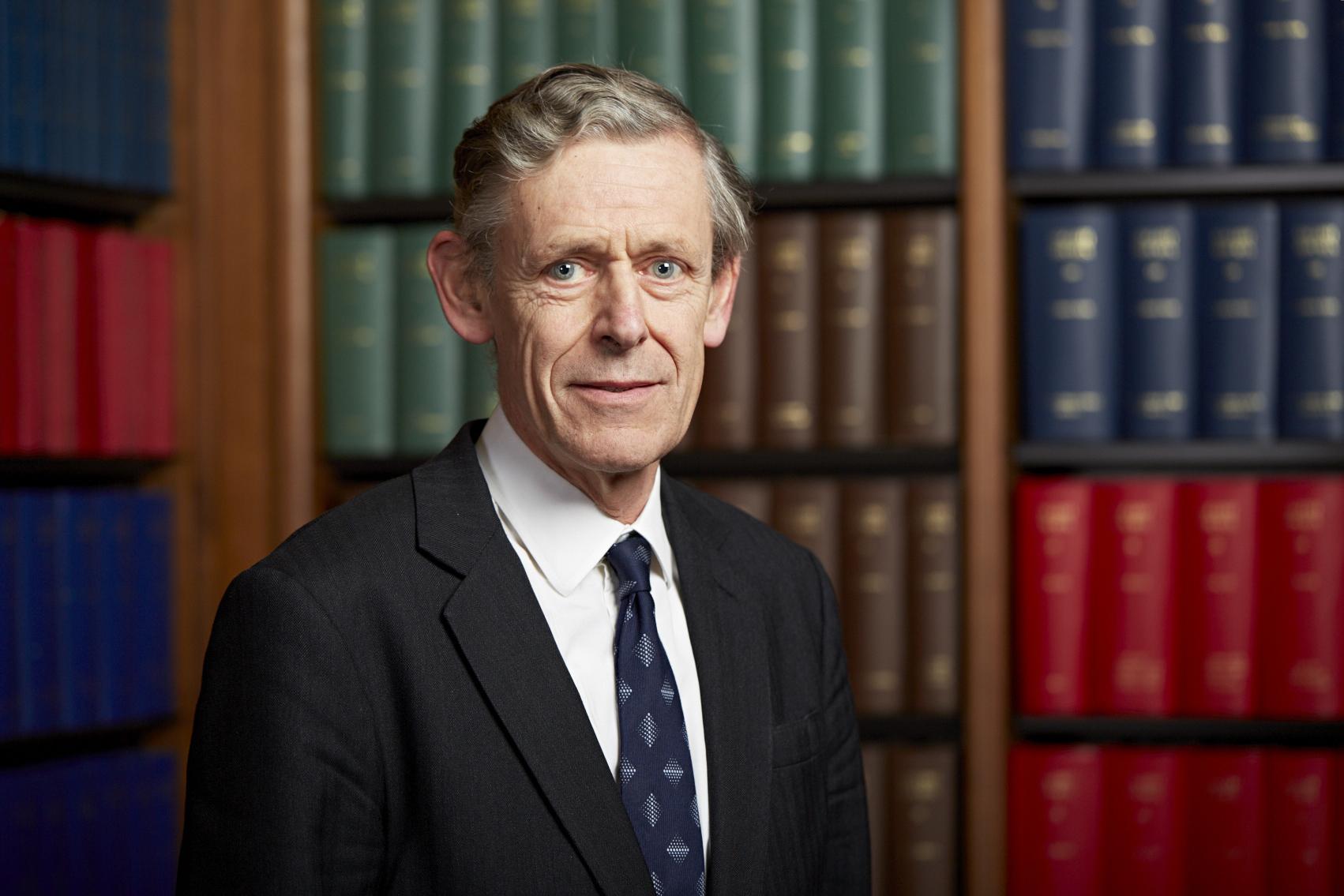Lord Toulson: Former UK Supreme Court judge with a deep and nuanced understanding of English common law
The defender of free expression recognised Scientology as a religion and opposed assisted dying

Roger Toulson was a British lawyer who eventually became one of the country’s most senior judges, ruling in key cases relating to Scientology and freedom of expression.
He was appointed to the Supreme Court in 2013 and retired from it a little over three years later. Common law – the polyphonic record of precedent judgments made in UK courts over centuries – was his biggest interest, and he dedicated himself to understanding its development and the ways in which it could be improved. Though common law has long held a dominant place in Britain, Toulson’s continued attachment to it did set him apart from some of his peers who were more interested in European legislation.
As a child, Toulson was a prodigious pupil at school, taking his A-levels aged 15 and being admitted to Jesus College, Cambridge, at just 16.
Toulson was called to the bar in 1969. He was appointed to the High Court in 1996 and the Court of Appeal in 2007. For five years he chaired the Law Commission, a body that recommends legal reform to Parliament.
Among those he thought of as mentors was Lord Bingham, the late President of the Supreme Court and author of The Rule of Law, whom he considered to be an “absolutely masterly” judge and “utterly polite”, but also “quite austere”. These three attributes may well have suited Toulson, too, judging from his rulings and public appearances.
A tall, lean and dignified man, Toulson wrote thorough, nuanced judgments that some lawyers read as much for pleasure as for work.
Though a proponent of common law, he recognised some decisions weren’t for the courts to make. “All human life is experimental, all forms of government are experimental,” he once said. “I think it would be a retrograde step if the courts, in the name of rights, prevented governments of whichever hue from engaging in legitimate social experimentation.”
In 2012, for instance, Toulson rejected the case of a paralysed man who pleaded that his doctors be allowed to end his life without fear of prosecution. Though he found the case “deeply moving”, he thought that only Parliament could legislate on this.
But he also knew when courts should act. “If the common law has gone wrong,” he said, “it’s the courts that have got it wrong, and the courts that should put it right.” He was capable of delivering strongly worded, at times controversial, decisions. One claim he said rested upon “fairy tales”, and in 2013 he judged that Scientology was a religion and could conduct marriages.
In a move that delighted some members of the British press, Toulson last year dissented from a Supreme Court ruling that granted a celebrity the right to anonymity in reports that he had had a threesome, after that information had spread online. In another freedom of expression case, he was of the opinion that James Rhodes, the classical pianist, should be allowed to publish his account of the abuse he suffered as a young boy, against his ex-wife’s argument that it would distress their son.
Toulson is survived by his wife and four children.
“I think some aspects of our criminal legal system are rather awful,” he once said. “I am concerned about the size of the prison population. I also have serious concerns about access to justice”. But of his experience of practising the law, Toulson said: “I can’t think of a better job.”
Roger Grenfell Toulson, judge: born 23 September 1946; died during a heart operation 27 June 2017
Subscribe to Independent Premium to bookmark this article
Want to bookmark your favourite articles and stories to read or reference later? Start your Independent Premium subscription today.

Join our commenting forum
Join thought-provoking conversations, follow other Independent readers and see their replies